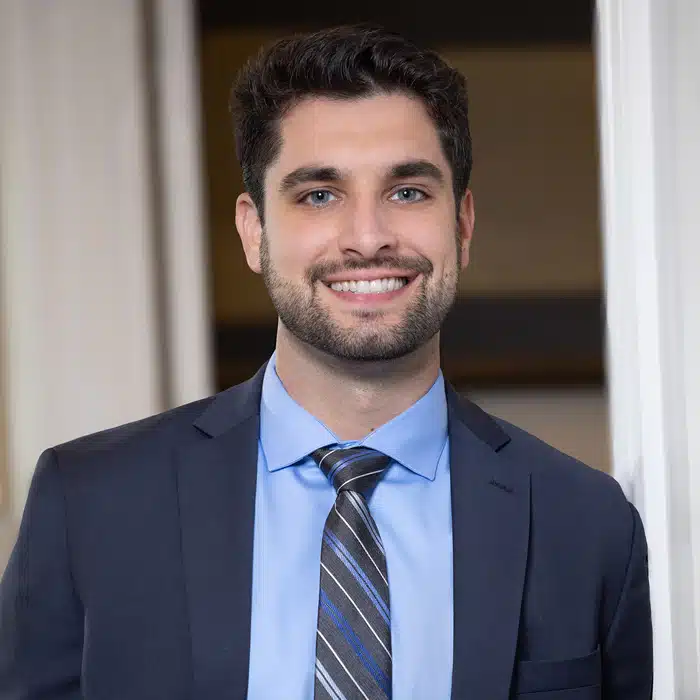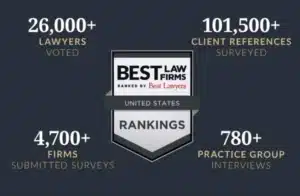Were you or a loved one hurt in a car crash?
As North Carolina’s biggest city (and growing), perhaps it comes as no surprise to you that Charlotte has a serious safe driving problem. Since 2018, Charlotte has ranked as the #1 city in the state based on the number of reported crashes, crash severity and crash rates based on population. In 2020, 188 people lost their lives in fatal car accidents in Charlotte and hundreds more were seriously injured.
According to government statistics, some of the most deadly and dangerous roads, highways and interstates in the Charlotte metro area and Mecklenburg County between 2015 and 2019 were:
- I-85
- NC-160
- NC-27
- US-29
- I-485
- I-77
- NC-51
- I-277
- Fairview Road
- Central Avenue
Source: https://www.nc.gov/services/crash-data
Regardless of where your crash happened or why, you are probably experiencing confusion, pain and justified anger in the aftermath of the wreck. On top of the physical injuries that were inflicted upon impact, crash survivors and their families often are left reeling from the intense emotional and financial consequences of another driver’s negligence. Even if you and the other driver have car insurance, often this monetary assistance is difficult to obtain and fails to compensate you fully for your accident damages.
Under North Carolina personal injury law, victims of serious car accidents can pursue further legal action against a negligent driver or another party to recover damages resulting from bodily injury and property damage, like a totaled car. These lawsuits are critical in helping struggling individuals and families pay for costly medical bills, as well as get compensated for lost wages, pain and suffering and other damages.
Unfortunately, obtaining the compensation you are owed isn’t as simple and straightforward as you might think.
The legal system is full of loopholes and complexities that insurance companies and defense attorneys commonly exploit to avoid liability and leave hurting families with no compensation, no options and no justice.
That’s where Wilder Law Group can help.
Our Charlotte crash injury lawyers are prepared to use decades of experience and knowledge to fight passionately to pursue the best possible outcome in your case. No attorney can ethically guarantee a win, but rest assured that we’ll pull out all the stops to represent your best interests should you choose to hire our team.
Have more questions?
We’ve got answers.
Should I give a recorded statement after a car accident?
In the aftermath of a car accident, especially one involving complex situations caused by brake checking, rear-end collisions, or multi-vehicle pileups, you may be asked to give a recorded statement.
While it may seem like a straightforward request, there are critical considerations to keep in mind.
Before agreeing to provide any statement, it’s essential to understand how your words could potentially be used and what impact they may have on your case.
Unless your attorney advises you otherwise, you should only give a recorded statement in the presence of your attorney.
Even after a serious accident, the adjuster may try to get a recorded statement from you the same day as your accident, sometimes within only a few hours.
But don’t be fooled. Adjusters know you might not be in the right state of mind to give a recorded statement after your car accident. Their job is to get your claim processed as quickly and cheaply as possible. Most adjusters will look for reasons to deny your claim and will use your recorded statement to help them do this.
Here is how your recorded statement can hurt you:
- It can be used by defense counsel to cross-examine you at trial or during deposition. This may not seem problematic, but many times, victims do not recall exactly what they said to the adjuster shortly after the accident. This may lead to some inconsistencies in your testimony, which defense counsel can use to try to convince the jury that you are not honest and should not be believed.
- The adjuster may use confusing language to try to trap you during your statement. Even an honest, “I don’t know” response could be used against you.
Ultimately, the safest route is to ask your personal injury attorney before making any statement to the insurance company.
What to do after a car crash in Charlotte, NC
The moments after a crash can be a blur. As adrenaline courses through your body, you can experience a crippling rush of panic, stress and disbelief. However, what you do (and don’t do) in these pivotal seconds, minutes, hours and days can make or break your future injury claim.
If you are in a car accident in Charlotte or elsewhere in Mecklenburg County, we strongly recommend taking the following steps:
Step 1: Pull over
You are required by law in North Carolina to stop your vehicle and exchange information with the other driver if you are involved in a collision. Failure to do so is a criminal hit-and-run offense. If you can, safely pull over to the side of the road and don’t block traffic. If the crash is serious and your car cannot be moved, remain in your vehicle until traffic has stopped and you can safely exit.
Step 2: Call the police
Accident reporting requirements in North Carolina state that you must report a crash you are involved in if it causes injury, death or property damage of $1,000 or more. Aside from this requirement, it’s always in your best interest to notify local authorities as soon as possible so that help can be dispatched immediately. Dial 911 for emergencies—or you can call (704) 336-7600 to report a non-emergency minor car accident in the City of Charlotte.
Step 3: Check for injuries
If you feel pain or think you may be hurt, try not to move and call 911 — or ask someone else to call for help. Only if you can move around safely and without pain should you then check on your passengers and the people in the other vehicle (or vehicles) to see if anyone is injured. Do not move anyone who is hurt unless you are removing them from a burning vehicle. Ask dispatchers to send an ambulance.
Step 4: Exchange information
As long as you and nobody else is seriously hurt, you can and should exchange some basic contact information with the other driver. Specifically, be sure to take pictures of their driver’s license, license plate and insurance card—or write down their full name, address, phone number, driver’s license number, license plate number, insurance company and policy number. This information should also be provided in the police report, but it’s always a good idea to exchange information directly just in case.
Step 5: Gather evidence
Before you leave the scene, and as you wait for the police to arrive and complete an accident report, use your phone to take pictures and video of important details like the damage to all vehicles involved, weather and road conditions, scattered debris, etc. If possible, also locate any eyewitnesses and write down their names and contact information.
Step 6: See a doctor
If you are seriously hurt, you should wait for paramedics to arrive and be transported to the emergency room in an ambulance. Even if your injuries appear to be minor or you don’t think you are hurt at all, seek medical care as soon as possible to make sure you don’t have an injury with delayed symptoms, as is common in car crashes. The shock and adrenaline a person experiences following an accident can mask or conceal serious injuries, which is why you should see a doctor right away even for minor crashes.
Step 7: Notify your insurer
Regardless of whether or not you were at fault for the crash, it’s important to report the accident to your auto insurance company as soon as possible. Many insurers require policyholders to report an accident within a certain deadline or else risk having coverage denied. In order to protect your future claim and get compensation faster, be sure to notify your insurer. Don’t give a recorded statement though — and under no circumstances should you speak with the other driver’s insurance company until you first consulted with your attorney.
Step 8: Speak with an attorney
One of the most important steps you can take after a car accident is contacting an injury attorney near you to get solid legal advice and avoid doing any of the common mistakes people make following a crash. When collisions involve multiple parties, serious injuries or wrongful death, it’s especially important to understand your rights. At Wilder Law Group, your first consultation is 100 percent free of charge, so it costs you nothing but your time to get answers and figure out your best course of action.
Common causes of car accidents
- Drunk driving accidents. Across the state, alcohol-related crashes accounted for more than 1 in 4 accident deaths between 2015 and 2019. In Mecklenburg County alone, nearly 1,000 people are killed in alcohol-related crashes each year, despite the fact that drunk driving is a criminal offense.
- Distracted driving. Even though North Carolina law prohibits drivers under age 18 from talking on a cell phone while driving, over 18 percent of crashes in the state involved a distracted driver (according to NCDOT). The most common and dangerous distraction is a cell phone, though there are many other ways drivers can be distracted behind the wheel.
- Teen drivers. On average, more than 6,000 teen drivers (between the ages of 15 and 19) are involved in car crashes in Mecklenburg County each year. Many teens are seriously hurt or killed, as are the unsuspecting victims who are hit by teen drivers. Lack of driver experience is commonly to blame for these tragic accidents.
- Reckless driving. Reckless and aggressive driving encompasses a large swatch of dangerous driving behaviors, such as speeding, tailgating, road rage and cutting off other vehicles. In 2020, speeding was a contributing factor in approximately 7 percent of all reportable motor vehicle crashes in North Carolina. Over 400 people were killed in speed-related crashes, and nearly 9,000 people were injured.
- Drowsy driving. The federal government estimates that around 50,000 people were injured and nearly 800 killed in drowsy driving car accidents in 2017. Driver fatigue is a serious problem in Charlotte, too, despite the fact that it is commonly overshadowed by distracted driving and drunk driving.
- Bad weather. A statewide study of fog-related crashes in North Carolina found that there were 19,188 car accidents caused by fog between 2003 and 2012. Heavy fog was the major contributing factor in a 95‐vehicle pileup on March 31, 2013 that left 3 people dead and injured 25 others. Other weather conditions like strong winds, heavy rain and flooding can lead to serious crashes and injuries.
- Road conditions. Potholes, improper signage and road construction are just a few examples of potentially dangerous and deadly road conditions that frequently cause accidents. As Charlotte grows, the rate of accidents caused by road conditions and construction zones continues to rise.
Top types of car crashes
- Rear-end collisions. Also known as “fender benders,” rear-end car accidents are one of the most commonly misunderstood and underestimated crash types. Even seemingly minor rear-end collisions can cause serious injuries like whiplash and spinal damage. Typically, the driver who crashed into the rear of another car is at fault, but there are exceptions to this rule.
- Head-on crashes. When 2 vehicles crash head-on, this is one of the most deadly collisions since the force of impact is doubled because each vehicle was traveling in opposite directions. It’s common for victims of head-on crashes to suffer catastrophic injuries, permanent disability or death.
- Rollover accidents. While less common than rear-end and head-on crashes, rollover accidents are no less deadly. Rollovers are more likely among large trucks, buses, SUVs and other vehicles with high centers of gravity. They commonly occur when a driver is speeding and takes a turn too fast, or swerves to avoid an obstacle in the road. Tire blowouts and equipment failure can also cause a rollover.
- Sideswipe collisions. When a driver shifts lanes and collides with the side of a vehicle traveling in the same direction, this is known as a sideswipe accident. Perhaps the other driver fell asleep at the wheel, was distracted or driving recklessly. Whatever the reason, negligence likely played a role and they may be liable for damages.
- Side impact (T-bone) wrecks. Side impact collisions are especially dangerous because drivers and passengers have the least amount of protection when struck from the side. Some cars come equipped with side airbags, but these aren’t as robust as front airbags. T-bone car accidents typically happen when a driver runs a red light at an intersection.
- Multi-vehicle pileups. Chain reaction crashes involving more than 2 vehicles are particularly dangerous. They are also quite complicated from a liability perspective, since more than 1 person may be to blame for the accident. Multiple drivers, insurance companies and lawyers may be involved, making an already overwhelming situation even more complex.
- Single vehicle accidents. Not all car accidents involve multiple vehicles. Sometimes a single vehicle collides with a tree, pole, building, pedestrian, bicyclist or animal. Approximately 39 percent of vehicular deaths in 2019 occurred in single-vehicle crashes.
Meet our attorneys
Charlotte Car Accident Attorneys Serving North Carolina Crash Victims & Their Families
Established in 2018 to serve injured individuals in North and South Carolina, the Wilder Pantazis Law Group is powered by a team of tried and tested attorneys with decades of experience successfully handling cases across the region. We are dedicated to providing the highest quality of legal services in the areas of workers’ compensation, personal injury, and complex civil litigation.
Client reviews and testimonials
The people working at Wilder Pantazis Law Firm are delightful to work with. They are all friendly, courteous, knowledgeable and very professional. They all make you feel at home in their office and that you are the most important client they have. I would definitely recommend this law firm for your legal needs. They are worth every penny.
– Jackie R.
Highly Recommend
“Beau Wilder was great to work with on my Workers’ Compensation case. He was always available to answer questions and made the process seamless. He went above and beyond in the whole process! Highly recommend letting him help you.”
– Brandon Watts
Fought for My Rights
“Beau Wilder was amazing to work with regarding my workers’ compensation case. Mr. Wilder treated me like family and fought hard for my rights and compensation. I recommend Mr. Wilder for anyone looking for a professional, hardworking and genuine attorney!”
– Daniel Hardin
Honest and Truly Cares
“Ms. Pantazis breaks the mold of the normal attorney. You don’t feel like you need a shower after talking to her. She is friendly, honest and truly cares about her clients. Things didn’t go as well as I wanted but would’ve been worse with anyone other than Annemarie.”
– William Gross
Car accident FAQ:
Common questions and answers
How much is my car accident injury worth?
There are many factors at play when calculating the potential value of your car accident claim. For instance, just a few of the factors that can affect how much you are entitled to include:
- The severity and longevity of your injury
- Your past medical expenses and future treatments
- Past and future lost wages
- The cost of emotional anguish and mental distress
- Whether the at-fault driver was “grossly negligent”
- What insurance coverage both drivers have
Be wary when using the countless car accident calculators found on the internet. When it comes to calculating the potential value of your claim, understand that every case is different and there is no standard rate of compensation for all car crash injury lawsuits. Without knowing the unique details and subtleties of your case, and the extent of your injuries, no website or legal professional can ethically calculate how much your claim is worth.
How long do I have to file an injury claim?
North Carolina has established a strict legal deadline—known as the “statute of limitations”—on all personal injury cases, including car accident lawsuits. Plaintiffs (accident victims) have just 3 years to submit a civil claim for personal injury and/or property damage. The clock starts ticking on the date of the accident, and there are few exceptions to this deadline.
If your loved one was killed in a fatal car accident and you wish to file a wrongful death claim, then you only have 2 years from the day of their death to file a claim.
If you are thinking that 2 or 3 years sounds like a long time, understand that building a strong case takes a lot of time and effort. What’s more, evidence and witnesses can be increasingly difficult to uncover the longer you wait. The sooner we can start working on your case, the better your chances are of securing the best possible outcome.
How much does it cost to hire an attorney?
The cost of retaining professional legal representation will ultimately depend on the agreement between you and the law firm you hire. Rather than charging an hourly flat fee, most car accident injury attorneys work on a contingency fee basis—meaning that their fee is contingent upon winning your case. In other words, you will only have to pay them if you are awarded compensation through a pre-trial settlement or court verdict.
Personal injury lawyers who work on a contingency fee basis typically take a percentage of the final award in the range of 25 to 40 percent, depending on the firm and the specific nature of your case.
Generally, people who are represented by a qualified attorney earn higher settlements and awards during negotiation or litigation, so this added expense may be more than covered in the end. So when determining whether or not you can afford to hire a lawyer, consider if you can afford not to.
Will my case go to court?
It’s certainly possible that your legal dispute will eventually lead to court litigation before a judge and jury. However, it’s far more common for car accident and personal injury cases to be resolved before going to court through pretrial negotiations such as mediation and arbitration. Only a small fraction of personal injury cases go to court.
Insurance companies are often more willing to settle out of court to avoid a costly and prolonged legal battle—not to mention the bad press. That said, it’s important to hire an attorney with a strong reputation as a fierce litigator in order to show that you are prepared and willing to take your case to court. This will only strengthen your position in negotiations.
Why should I hire a lawyer?
Each state follows its own liability and negligence rules when it comes to determining fault for a car accident. North Carolina is one of the few states that still operates under the legal doctrine known as “contributory negligence.” This doctrine makes it more difficult for plaintiffs to seek damages for a car accident because their claim can be denied if they are found to be responsible for the crash in any capacity.
Here’s what that means:
Even if you are only 1 percent liable for a crash and the other driver is 99 percent responsible, your car accident lawsuit could be denied under North Carolina’s negligence laws.
Insurance companies and defense lawyers know this rule favors them, and make no mistake that they will seek to use it to have your claim dismissed outright. In fact, insurers with deep pockets pay entire teams of corporate attorneys for this very purpose. For this reason, it’s vital that you obtain experienced legal counsel of your own to determine how to overcome this significant legal obstacle.
How can you help me?
Following a car accident where someone was seriously hurt or even killed, it’s understandable to feel overwhelmed and lost in a sea of despair. Our Charlotte car accident attorneys have decades of experience helping accident survivors and the families of those killed in fatal crashes get full and fair compensation for their losses. While money cannot heal all wounds, it can help you and your family stay afloat through this difficult time.
We fully are prepared to help protect your rights by:
- Ensuring you receive proper care for your accident injuries
- Conducting a thorough investigation of the accident to determine fault
- Properly calculating your damages, including pain and suffering
- Filing all necessary paperwork and ensuring that deadlines are met
- Talking to insurance companies on your behalf
- Negotiating with the at-fault driver to secure the best possible outcome
- Skillfully representing you in court, if it comes to that
Have more questions?
We’ve got answers.


 Annemarie Pantazis
Annemarie Pantazis  Rob Wilder
Rob Wilder  Beau Wilder
Beau Wilder  Allison Vaughn
Allison Vaughn  Jeanette Byrum
Jeanette Byrum  Todd King
Todd King  Sam McGee
Sam McGee  Vince Varano
Vince Varano 
